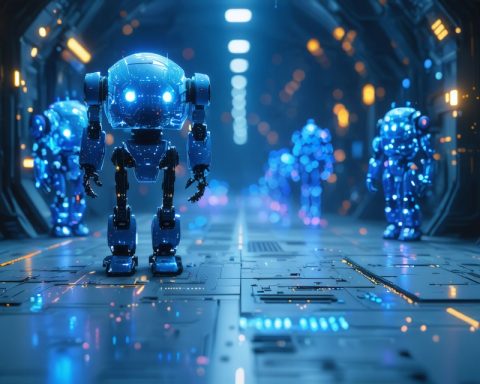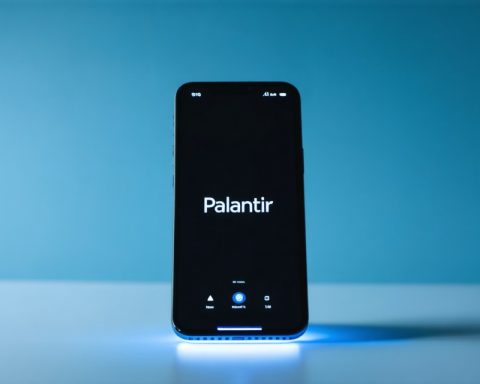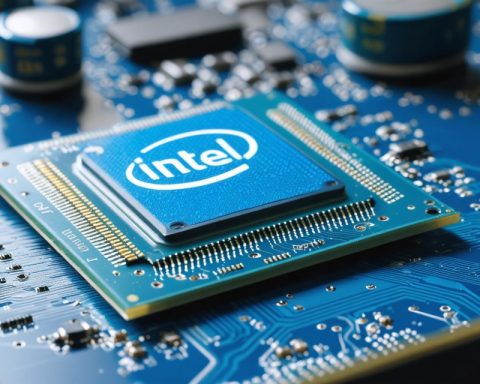Visionary Career Paths in the AI Era
As artificial intelligence (AI) continues its relentless march forward, its impact on the global job market becomes increasingly profound. This isn’t simply about machines replacing humans—it’s about the emergence of novel career opportunities in domains once unimaginable.
Emerging Roles in AI
The rapid evolution of AI has propelled the birth of several innovative job roles. Positions such as AI ethicists, who guide ethical AI implementation, and AI auditors, tasked with maintaining transparency in AI systems, are becoming integral. These roles reflect a heightened awareness of creating AI systems that uphold human values and societal norms.
The Educational Transformation
This technological leap has ignited a significant overhaul in educational curricula. There’s a mounting emphasis on AI literacy, urging both new graduates and veteran professionals to adapt. Universities and training centers are pioneering courses specifically designed to bridge the skills gap, ensuring the workforce aligns with the demands of the AI-led economy.
Navigating Skills Mismatch
One of the major hurdles is the pronounced skills mismatch. As AI advances, existing job skills fall out of step with the market’s needs. The solution lies in a united effort between governments, educational institutions, and industries to develop training programs that cater to future opportunities, laying the groundwork for a workforce that is both adaptable and future-ready.
Looking Ahead
Looking forward, the tech industry promises a renaissance in career possibilities driven by AI ingenuity. For professionals, embracing continuous learning and diversifying skill sets will be essential. This adaptable approach promises not just sustainability but thriving within a quickly evolving work environment, ushering in an age where human creativity and artificial intelligence coexist harmoniously.
The Environmental Impact of AI and Its Role in Shaping Future Career Paths
The integration of artificial intelligence (AI) into the global economy is transforming not only the job market but also the environment. As roles like AI ethicists and AI auditors emerge, the potential environmental ramifications of AI’s expansion deserve scrutiny. The formation of these new career paths indirectly highlights environmental consciousness. AI’s capacity to drive sustainable practices, optimize resource utilization, and mitigate climate change could have a profound impact on humanity’s future.
AI’s Influence on Environmental Sustainability
AI can significantly affect the environment through energy efficiency, waste management, and earth monitoring systems. For instance, AI systems can optimize energy consumption in industries, reducing carbon footprints and enhancing resource management. AI ethicists, who ensure ethical guidelines in AI applications, must also address the potential environmental impacts of AI technologies, ensuring that solutions align with sustainability goals.
Optimizing Resources
The development of AI-driven technologies allows for better resource optimization. Smart grids powered by AI algorithms can dynamically adjust energy distribution, minimizing waste and lowering greenhouse gas emissions. Furthermore, AI can play a crucial role in agriculture by predicting crop yields, optimizing irrigation, and reducing the overuse of fertilizers and pesticides, contributing to sustainable food production.
Climate Change Mitigation
One of the world’s most pressing challenges is climate change, and AI has the potential to be a transformative tool in addressing this issue. AI algorithms can analyze vast quantities of climate data to model outcomes and assess risks. These insights allow policymakers and environmental agencies to implement and monitor effective climate action strategies.
Future of Jobs and Environmentalism
The emergence of AI-related careers entails a cross-disciplinary approach that includes environmental sustainability as a key component. Professionals involved in AI development are likely to influence the integration of green practices within technology adoption frameworks. This eco-friendly focus can significantly mitigate the adverse environmental impacts of industrial activities, especially in nations undergoing rapid technological advancement.
Connection to the Future of Humanity
As AI evolves, aligning technology with environmental goals becomes crucial. Careers focusing on sustainable AI applications could essentially lead to a harmonious fusion of technological progress and ecological preservation. The dedication to continuous learning in AI ensures that professionals remain aware and equipped to tackle new environmental challenges through innovative solutions.
The commitment to integrating sustainability into AI development projects could lead humanity to a future where technological advancements not only coexist with but actively protect, our planet. If AI can propel us toward a greener future, then its role transcends beyond economic gains, securing a legacy for future generations by safeguarding the Earth’s ecosystem.
Unlocking Future Opportunities: Navigating AI’s Impact on Careers
Revolutionizing the Job Market: AI’s New Frontiers
Artificial intelligence (AI) continues to transform the job landscape, introducing not only challenges but also a plethora of new opportunities. As roles like AI ethicists and AI auditors become central to ensuring ethical and transparent AI systems, a variety of innovative career paths are emerging in the sector. Understanding the implications of this shift and how to adequately prepare for it is crucial for both current and future professionals.
Decoding the AI Era: What Are the New Roles?
AI’s rapid evolution paves the way for a myriad of new career opportunities beyond the traditional tech arena. Emerging roles include:
– AI Interaction Designers: These professionals design how AI systems interact with humans to ensure user-friendly experiences.
– Machine Learning Operations (MLOps) Specialists: This role focuses on automating and improving the deployment of machine learning models.
– AI Business Development Consultants: These consultants help businesses integrate AI solutions to transform operations and drive growth.
These roles require not only technical expertise but also a keen understanding of how AI can be leveraged across various industry verticals.
Education and AI: Bridging the Skills Gap
With AI’s integration into every sector, the need for comprehensive educational reform is urgent. Institutions are increasingly offering specialized AI training programs and certifications that focus on:
– Ethical AI Use: Modules aimed at understanding ethical practices in AI deployment.
– Programming and Data Science: Advanced courses in languages and tools essential for AI development.
– Soft Skills for AI: Developing skills like critical thinking, creativity, and problem-solving which are vital in AI-related decision-making processes.
By proactively updating their curricula, educational institutions are preparing students for a hybrid workforce where human and machine collaboration is the norm.
Future Trends in AI Careers
The future of work in the AI era is marked by some key trends:
– Hyper-Personalization of Career Paths: AI will enable more personalized career development opportunities, aligning roles more closely with individual employee strengths and interests.
– Increased Demand for AI Literacy: As AI systems become ubiquitous, having a basic understanding of AI will become a standard requirement across many professions.
– Remote Work and AI: AI-driven tools will continue to facilitate the global trend towards remote and gig economy work structures, making location less relevant.
Security and Sustainability in AI Careers
As AI becomes more integrated into business processes, concerns around security and sustainability rise. Companies are increasingly investing in:
– AI Security Experts: Professionals focused on protecting AI systems from cyber threats and ensuring data integrity.
– Sustainable AI Practices: Creating AI solutions that consider environmental impact, promoting a sustainable approach to tech innovations.
In today’s rapidly changing job market, staying informed about these emerging trends and preparing for these evolving opportunities is vital for anyone looking to either start or advance their career in the AI era.
To learn more about AI’s impact on careers and how you can prepare, visit World Economic Forum.










